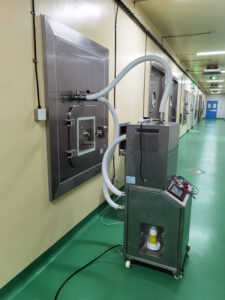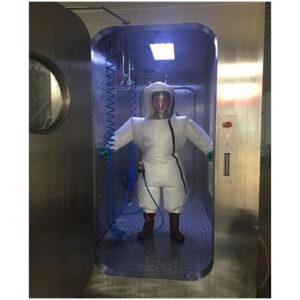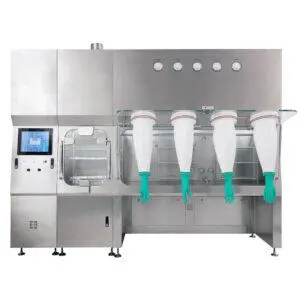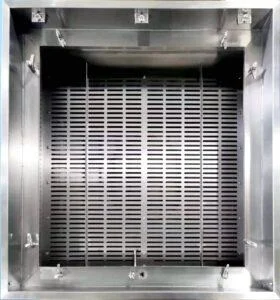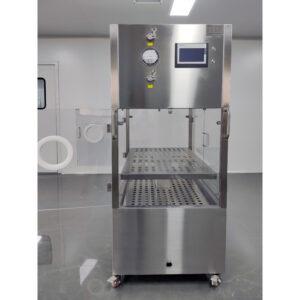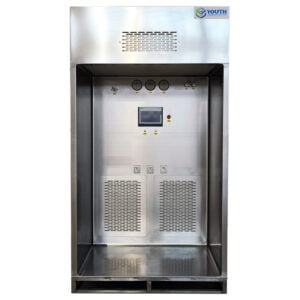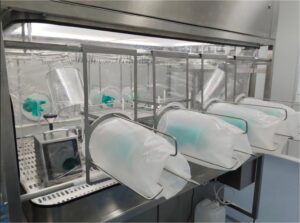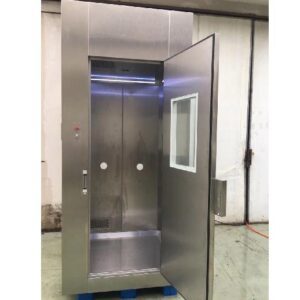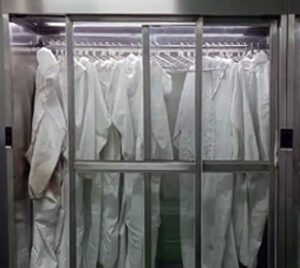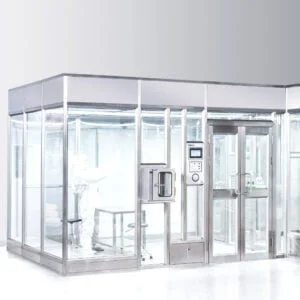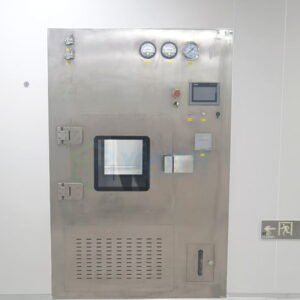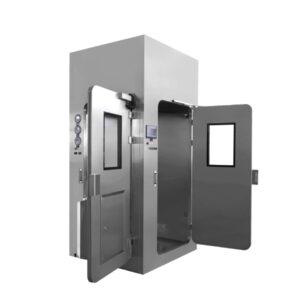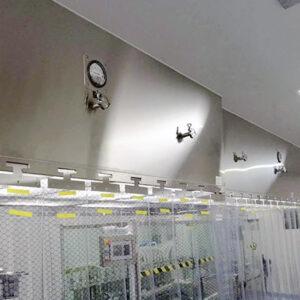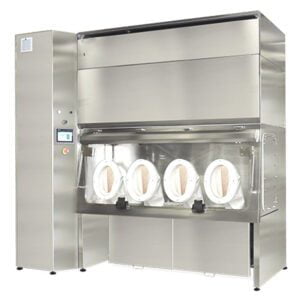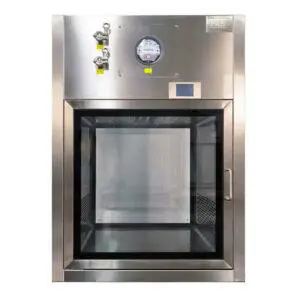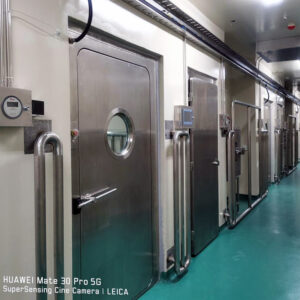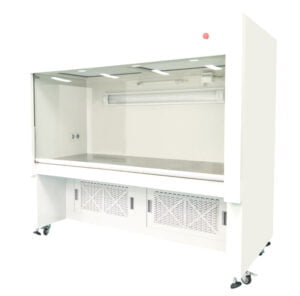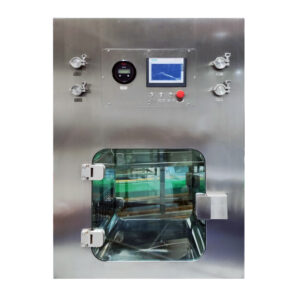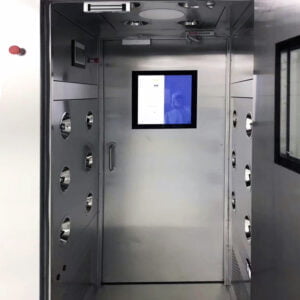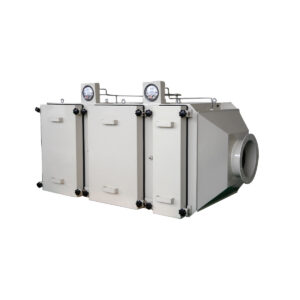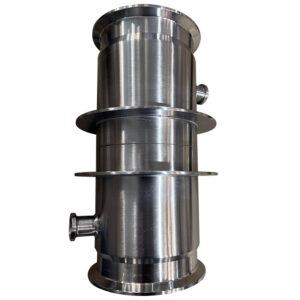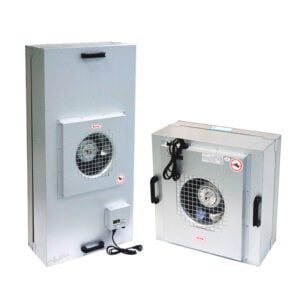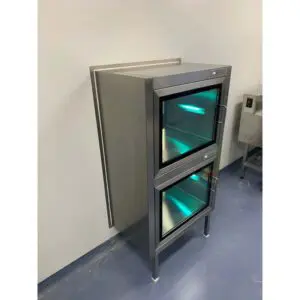Electrical safety in chemical shower rooms is a critical aspect of workplace safety that demands careful consideration and implementation of best practices. As industries increasingly prioritize employee well-being and regulatory compliance, the importance of proper electrical installations in these potentially hazardous environments cannot be overstated. This article delves into the essential considerations and guidelines for ensuring electrical safety in chemical shower rooms, providing valuable insights for facility managers, safety officers, and engineering professionals.
The intersection of water, chemicals, and electricity in shower rooms creates a unique set of challenges that require specialized knowledge and equipment. From proper grounding and isolation to the selection of appropriate fixtures and materials, every aspect of the electrical system must be carefully designed and maintained to minimize risks and ensure optimal functionality. This comprehensive guide will explore the key elements of electrical safety in chemical shower rooms, including regulatory requirements, equipment selection, installation best practices, and ongoing maintenance strategies.
As we transition into the main content of this article, it's important to recognize that electrical safety in chemical shower rooms is not just about compliance – it's about creating a secure environment that protects workers and maintains the integrity of critical safety equipment. By understanding and implementing the best practices outlined in this guide, organizations can significantly reduce the risk of electrical hazards and ensure that their chemical shower rooms remain safe and functional at all times.
Proper electrical safety measures in chemical shower rooms are essential for preventing accidents, ensuring equipment reliability, and maintaining compliance with industry regulations. Implementing comprehensive safety protocols and utilizing appropriate electrical components can significantly reduce the risk of electrical hazards in these potentially dangerous environments.
What are the key electrical considerations for chemical shower rooms?
When designing and implementing electrical systems for chemical shower rooms, several crucial factors must be taken into account. The primary goal is to create a safe environment that minimizes the risk of electrical hazards while ensuring the reliable operation of essential safety equipment.
Key considerations include proper grounding, isolation of electrical components from water and chemicals, selection of appropriate fixtures and materials, and compliance with relevant safety standards and regulations. Additionally, the specific nature of chemicals present in the shower room may influence the choice of electrical equipment and installation methods.
Delving deeper into these considerations, it's important to note that chemical shower rooms present unique challenges due to the presence of conductive liquids and potentially corrosive substances. This environment requires specialized electrical equipment designed to withstand harsh conditions while maintaining safety and functionality. For instance, all electrical outlets in the vicinity of the shower area must be equipped with ground fault circuit interrupters (GFCIs) to prevent electric shock hazards.
Implementing robust electrical safety measures in chemical shower rooms is crucial for protecting personnel and ensuring the reliable operation of emergency equipment. Proper grounding, isolation, and selection of corrosion-resistant components are essential elements in creating a safe and compliant electrical system for these specialized environments.
| Key Electrical Considerations | Description |
|---|---|
| Grounding | Proper grounding of all electrical equipment and metal surfaces |
| Isolation | Separation of electrical components from water and chemical exposure |
| GFCI Protection | Installation of ground fault circuit interrupters for all outlets |
| Corrosion Resistance | Use of materials and components resistant to chemical degradation |
| Compliance | Adherence to relevant electrical and safety codes and standards |
In conclusion, addressing these key electrical considerations is fundamental to creating a safe and functional chemical shower room. By prioritizing these aspects during the design and installation phases, organizations can significantly reduce the risk of electrical hazards and ensure the reliability of critical safety equipment.
How does proper grounding contribute to electrical safety in shower rooms?
Proper grounding is a cornerstone of electrical safety in chemical shower rooms. It plays a crucial role in protecting both personnel and equipment from the dangers of electric shock and other electrical hazards. By providing a safe path for excess electrical current to dissipate, grounding helps prevent the buildup of potentially dangerous voltages on exposed metal surfaces and equipment enclosures.
In the context of chemical shower rooms, grounding is particularly important due to the presence of water and conductive chemicals. These substances can increase the risk of electric shock and create pathways for stray currents. Proper grounding ensures that any fault currents are quickly and safely directed to the earth, reducing the risk of injury or equipment damage.
Implementing an effective grounding system in chemical shower rooms involves several key components. All electrical equipment, metal enclosures, and exposed conductive surfaces must be connected to a reliable grounding system. This includes not only obvious electrical components but also metal piping, shower frames, and other metallic structures that could potentially become energized in the event of an electrical fault.
A comprehensive grounding system is essential for maintaining electrical safety in chemical shower rooms. Proper grounding not only protects against electric shock hazards but also helps to prevent the ignition of flammable vapors and reduces electromagnetic interference that could affect sensitive equipment.
| Grounding Components | Purpose |
|---|---|
| Equipment Grounding Conductors | Connect equipment to the grounding system |
| Bonding Jumpers | Ensure electrical continuity between metal parts |
| Ground Rods | Provide a low-resistance path to earth |
| Grounding Electrode System | Connects the electrical system to the earth |
| GFCI Devices | Detect ground faults and interrupt the circuit |
In conclusion, proper grounding is a critical aspect of electrical safety in chemical shower rooms. By implementing a robust grounding system, organizations can significantly reduce the risk of electrical hazards and create a safer environment for personnel. Regular inspection and maintenance of the grounding system are essential to ensure its continued effectiveness in protecting against electrical dangers.
What role do GFCIs play in ensuring electrical safety for shower rooms?
Ground Fault Circuit Interrupters (GFCIs) are indispensable components in the electrical safety strategy for chemical shower rooms. These devices play a crucial role in protecting individuals from electric shock by quickly detecting imbalances in electrical current flow and interrupting the circuit before a dangerous situation can occur.
In the context of shower rooms, where water and electricity are in close proximity, GFCIs are particularly important. They constantly monitor the current flowing through the hot and neutral conductors of an electrical circuit. If a ground fault is detected – such as when current begins to flow through water or a person's body to the ground – the GFCI will trip, cutting off power to the circuit in a fraction of a second.
The implementation of GFCIs in chemical shower rooms goes beyond basic safety requirements. These devices are essential for complying with electrical codes and regulations, which typically mandate their use in wet or damp locations. YOUTH emphasizes the importance of using high-quality GFCI devices in all areas where water and electricity may come into contact, ensuring maximum protection for users of chemical shower facilities.
GFCIs are critical safety devices that can prevent severe injuries or fatalities in chemical shower rooms. Their ability to quickly detect and interrupt ground faults makes them an essential line of defense against electric shock hazards in wet environments.
| GFCI Features | Benefits |
|---|---|
| Fast Trip Time | Interrupts current flow within 1/40th of a second |
| Sensitivity | Detects current imbalances as small as 4-6 milliamps |
| Self-Testing | Many modern GFCIs have built-in self-test functions |
| Reset Capability | Allows for easy restoration of power after tripping |
| Weather Resistance | Outdoor-rated GFCIs for exposed installations |
In conclusion, GFCIs are a fundamental component of electrical safety in chemical shower rooms. Their rapid response to ground faults provides crucial protection against electric shock hazards, making them an essential element in creating a safe environment for personnel. Regular testing and maintenance of GFCI devices are necessary to ensure their continued effectiveness in protecting against electrical dangers.
How should electrical fixtures be selected for chemical shower environments?
Selecting appropriate electrical fixtures for chemical shower environments requires careful consideration of several factors to ensure safety, durability, and functionality. The harsh conditions present in these areas, including exposure to water, chemicals, and potentially corrosive atmospheres, demand specialized equipment designed to withstand these challenges.
When choosing electrical fixtures for chemical shower rooms, it's crucial to prioritize products with appropriate ingress protection (IP) ratings. These ratings indicate the fixture's ability to resist the intrusion of water and solid particles. For shower environments, fixtures should typically have a minimum rating of IP65, which provides protection against water jets from any direction.
Beyond water resistance, the chemical compatibility of materials used in electrical fixtures is paramount. Components must be able to withstand exposure to the specific chemicals present in the shower room without degradation. This often necessitates the use of fixtures constructed from corrosion-resistant materials such as stainless steel, PVC, or specially coated alloys.
Selecting electrical fixtures with appropriate IP ratings and chemical resistance is crucial for maintaining safety and longevity in chemical shower rooms. Fixtures that meet or exceed the environmental demands of these spaces not only enhance safety but also reduce maintenance costs and downtime associated with premature equipment failure.
| Fixture Consideration | Recommendation |
|---|---|
| IP Rating | Minimum IP65 for water and dust protection |
| Material | Corrosion-resistant (e.g., 316 stainless steel) |
| Chemical Compatibility | Verified for specific chemicals present |
| Lighting | Vapor-tight, chemical-resistant LED fixtures |
| Switches | Sealed, chemical-resistant designs |
| Outlets | GFCI-protected, weatherproof enclosures |
In conclusion, the selection of electrical fixtures for chemical shower rooms requires a thorough understanding of the environmental conditions and potential hazards present. By choosing fixtures with appropriate IP ratings, chemical resistance, and safety features, organizations can create a safer and more reliable electrical system for these critical areas. Regular assessment and updating of fixtures may be necessary to ensure ongoing compliance with safety standards and to take advantage of advancements in fixture technology.
What are the key electrical code requirements for chemical shower installations?
Adhering to electrical code requirements is crucial when installing and maintaining chemical shower rooms. These codes, typically based on the National Electrical Code (NEC) in the United States or similar standards in other countries, provide essential guidelines for ensuring the safety and compliance of electrical installations in hazardous environments.
Key electrical code requirements for chemical shower installations often include specifications for circuit protection, wiring methods, equipment selection, and grounding practices. These requirements are designed to minimize the risk of electrical hazards in environments where water and chemicals are present, and where emergency safety equipment must function reliably.
One of the fundamental code requirements is the use of ground fault circuit interrupters (GFCIs) for all receptacles in the vicinity of chemical showers. The NEC typically mandates GFCI protection for all 15- and 20-ampere, 125-volt receptacles installed in bathrooms and other wet locations. This requirement extends to chemical shower rooms, where the risk of electric shock is heightened.
Compliance with electrical codes is not just a legal requirement but a critical safety measure for chemical shower installations. Adhering to these standards ensures that electrical systems are designed and installed to withstand the unique challenges of wet and potentially corrosive environments while providing reliable power for essential safety equipment.
| Code Requirement | Description |
|---|---|
| GFCI Protection | Required for all receptacles in wet locations |
| Wiring Methods | Use of moisture-resistant and chemical-resistant wiring |
| Equipment Ratings | Minimum IP ratings for fixtures and enclosures |
| Grounding | Comprehensive grounding and bonding of all metal components |
| Circuit Isolation | Dedicated circuits for emergency equipment |
In conclusion, understanding and implementing the relevant electrical code requirements is essential for creating safe and compliant chemical shower installations. These codes provide a framework for addressing the unique challenges of these environments, ensuring that electrical systems are designed to protect personnel and maintain the functionality of critical safety equipment. Regular code updates and inspections are necessary to maintain compliance and adapt to evolving safety standards.
How can proper maintenance ensure long-term electrical safety in shower rooms?
Proper maintenance is crucial for ensuring long-term electrical safety in chemical shower rooms. Regular inspections, testing, and upkeep of electrical systems and components are essential to identify and address potential hazards before they lead to accidents or equipment failures. A comprehensive maintenance program not only enhances safety but also extends the lifespan of electrical equipment and ensures compliance with safety regulations.
Key aspects of electrical maintenance for chemical shower rooms include regular visual inspections of all electrical components, testing of GFCIs and other safety devices, and thorough cleaning to prevent the accumulation of corrosive substances on electrical equipment. It's also important to regularly verify the integrity of seals and gaskets on electrical enclosures to ensure they maintain their protective ratings against water and chemical ingress.
Implementing a scheduled maintenance program that addresses both preventive and corrective measures is essential. This should include periodic testing of emergency systems, such as Electrical considerations for shower rooms to ensure they function correctly when needed. Documentation of all maintenance activities, including any repairs or replacements, is crucial for tracking the condition of the electrical system over time and demonstrating compliance with safety standards.
A proactive maintenance approach is key to maintaining electrical safety in chemical shower rooms. Regular inspections, testing, and upkeep not only prevent accidents but also ensure the reliability of critical safety equipment, potentially saving lives in emergency situations.
| Maintenance Task | Frequency |
|---|---|
| Visual Inspection | Monthly |
| GFCI Testing | Monthly |
| Enclosure Seal Check | Quarterly |
| Corrosion Assessment | Quarterly |
| Full System Test | Annually |
| Equipment Calibration | As per manufacturer recommendations |
In conclusion, proper maintenance is a critical component of long-term electrical safety in chemical shower rooms. By implementing a comprehensive maintenance program that includes regular inspections, testing, and upkeep, organizations can significantly reduce the risk of electrical hazards, ensure the reliability of safety equipment, and maintain compliance with safety regulations. Ongoing training for maintenance personnel and staying updated on the latest safety standards are also essential for maintaining a safe electrical environment in these critical areas.
How do emergency power systems factor into shower room electrical safety?
Emergency power systems play a crucial role in maintaining electrical safety and functionality in chemical shower rooms, especially during power outages or other electrical emergencies. These systems ensure that critical safety equipment, including emergency lighting, alarms, and the shower itself, remains operational when normal power sources fail.
The importance of emergency power in chemical shower rooms cannot be overstated. In the event of a chemical exposure incident, the availability of a functioning emergency shower can be life-saving. Emergency power systems typically include backup generators or uninterruptible power supplies (UPS) that automatically activate when the main power supply is disrupted.
When designing emergency power systems for chemical shower rooms, it's essential to consider the specific power requirements of all critical equipment. This includes not only the shower mechanism but also ventilation systems, emergency lighting, and any monitoring or alarm systems. The emergency power system must be capable of supporting these loads for a sufficient duration to allow for safe evacuation or incident response.
Reliable emergency power systems are essential for maintaining safety in chemical shower rooms during power outages. These systems ensure that critical safety equipment remains operational, potentially saving lives in emergency situations and allowing for proper incident response and evacuation procedures.
| Emergency Power Component | Function |
|---|---|
| Backup Generator | Provides long-term power during extended outages |
| UPS System | Ensures immediate power supply during switchover |
| Automatic Transfer Switch | Seamlessly transfers load to backup power |
| Emergency Lighting | Illuminates evacuation routes and work areas |
| Alarm Systems | Maintains functionality of safety alert systems |
In conclusion, emergency power systems are a critical component of electrical safety in chemical shower rooms. By ensuring that essential safety equipment remains operational during power outages, these systems play a vital role in protecting personnel and facilitating proper emergency response. Regular testing and maintenance of emergency power systems are essential to ensure their reliability when needed most.
What are the latest innovations in electrical safety for chemical shower environments?
The field of electrical safety for chemical shower environments is continually evolving, with new technologies and innovations emerging to enhance protection and reliability. These advancements aim to address the unique challenges posed by the combination of water, chemicals, and electricity in these critical safety areas.
One significant innovation is the development of advanced, self-testing GFCI devices. These new-generation GFCIs perform automatic, periodic self-tests to ensure they are functioning correctly, providing an additional layer of safety beyond manual testing. Some models even have the capability to alert maintenance personnel when they detect a potential issue, allowing for proactive maintenance.
Another area of innovation is in the realm of smart monitoring systems for electrical safety. These systems use sensors and IoT (Internet of Things) technology to continuously monitor electrical parameters, environmental conditions, and equipment status in chemical shower rooms. They can provide real-time alerts and data analytics, enabling facility managers to identify potential issues before they become serious problems.
The integration of smart technologies and advanced materials in electrical safety systems for chemical shower rooms is revolutionizing how organizations approach risk management and maintenance. These innovations not only enhance safety but also improve operational efficiency and compliance tracking.
| Innovation | Benefit |
|---|---|
| Self-Testing GFCIs | Continuous verification of GFCI functionality |
| Smart Monitoring Systems | Real-time tracking of electrical and environmental parameters |
| Advanced Corrosion-Resistant Materials | Increased longevity of electrical components in harsh environments |
| LED Emergency Lighting | Improved energy efficiency and longer operational life |
| Wireless Emergency Stop Systems | Enhanced accessibility and speed of power shutdown in emergencies |
In conclusion, the latest innovations in electrical safety for chemical shower environments are focused on enhancing protection, improving monitoring capabilities, and increasing the reliability of safety systems. By staying abreast of these technological advancements and implementing them where appropriate, organizations can significantly improve the safety and efficiency of their chemical shower facilities. As technology continues to evolve, it's likely that we will see even more sophisticated solutions for managing electrical safety in these critical environments.
In conclusion, ensuring electrical safety in chemical shower rooms is a multifaceted challenge that requires careful consideration of various factors, from proper grounding and GFCI protection to the selection of appropriate fixtures and implementation of emergency power systems. By adhering to best practices, complying with relevant electrical codes, and staying informed about the latest safety innovations, organizations can create a safer environment for personnel and maintain the reliability of critical safety equipment.
The importance of regular maintenance and testing cannot be overstated, as it plays a crucial role in identifying potential hazards before they lead to accidents or equipment failures. Additionally, the integration of smart technologies and advanced materials offers new opportunities to enhance safety measures and improve operational efficiency.
As industries continue to prioritize worker safety and regulatory compliance, the field of electrical safety in chemical shower rooms will undoubtedly see further advancements. It is essential for facility managers, safety officers, and engineering professionals to stay informed about these developments and to continuously assess and update their safety protocols.
By implementing comprehensive electrical safety measures, organizations not only protect their employees but also demonstrate a commitment to creating a secure work environment. This proactive approach to safety can lead to increased confidence among workers, improved regulatory compliance, and ultimately, a more resilient and efficient operation.
External Resources
Tips for Electrical Safety in the Bathroom – This article from Mister Sparky provides essential tips on ensuring electrical safety in bathrooms, including the importance of GFCI-protected outlets, safe placement of electrical sockets, and avoiding the use of electrical devices in contact with water.
Six Electrical Requirements for Your Bathroom Remodel – This blog post from Spectrum Electric Inc. outlines the necessary electrical requirements and regulations for bathroom remodels, such as the need for 20-amp circuits, GFCI protection, and keeping electrical components outside of shower and tub areas.
Electrical Code Requirements for Bathrooms – The Spruce provides a detailed guide on electrical code requirements for bathrooms, including the need for dedicated circuits, GFCI and AFCI protection, and specific lighting and ventilation requirements.
Your Guide to NEC Bathroom Outlet Requirements – This article from Nassau National Cable explains the National Electrical Code (NEC) requirements for bathroom outlets, including GFCI protection, dedicated circuits, and specific guidelines for lighting and ventilation.
Electrical Safety – The U.S. Consumer Product Safety Commission provides comprehensive information on electrical safety in homes, including bathroom-specific guidelines and general tips for preventing electrical hazards.
Bathroom Electrical Safety: Essential Tips for Homeowners – HomeAdvisor offers a detailed guide on electrical safety in bathrooms, covering topics such as proper installation of GFCI outlets, safe use of electrical appliances, and the importance of hiring licensed electricians for bathroom renovations.
- Bathroom Lighting and Electrical Requirements – The Family Handyman provides a comprehensive overview of electrical requirements for bathroom lighting, including code compliance, fixture selection, and installation guidelines for various bathroom areas.
Related Contents:
- Emergency Chemical Shower Rooms: Quick Response Guide
- Chemical Shower Room Lighting: Safety and Visibility
- Stainless Steel Chemical Shower Rooms: Durability Guide
- Enclosed Chemical Shower Rooms: Privacy and Safety
- ADA Compliant Chemical Shower Rooms: Accessibility Guide
- Top 5 Portable Chemical Shower Rooms for Labs
- Chemical Shower Room Installation: Step-by-Step Guide
- Chemical Shower Room Maintenance: 7-Step Checklist
- Outdoor Chemical Shower Rooms: Weather-Resistant Options


